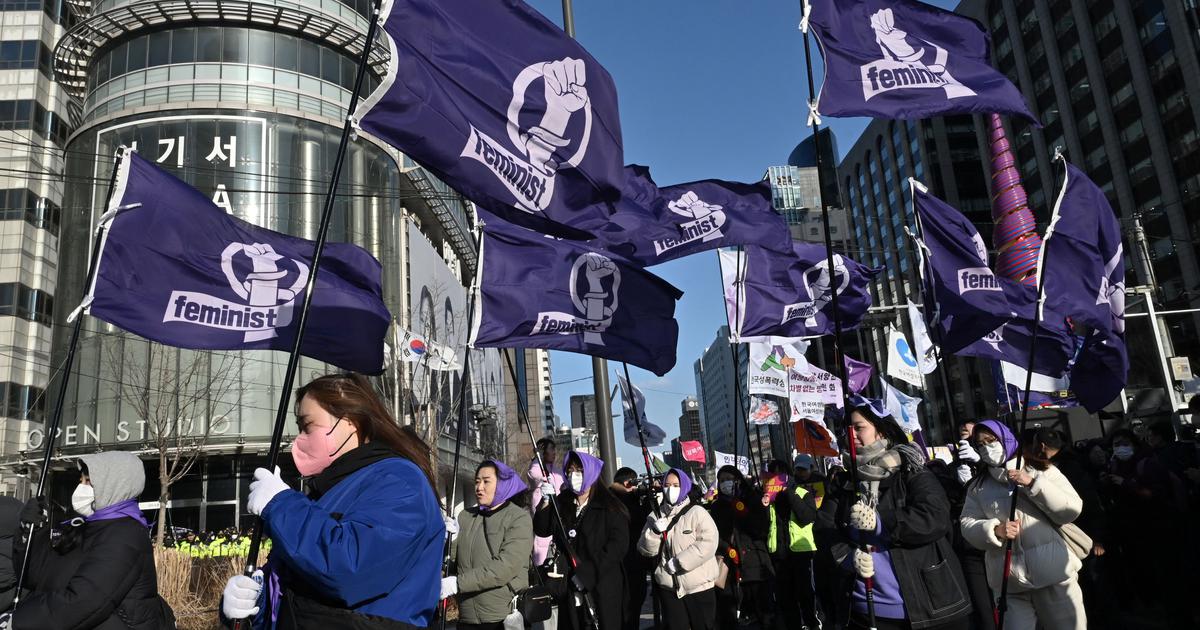A Radical Rejection of Traditional Roles
South Korea’s “4B Movement” is rapidly growing among young women who reject societal expectations related to marriage, motherhood, dating, and heterosexual relationships. The name derives from the Korean word “bi” (비/非), meaning “no,” symbolizing four main principles: bihon (no marriage), bichulsan (no childbirth), biyeonae (no dating), and bisekseu (no sex). This movement seeks to redefine women’s lives by moving beyond traditional gender roles and patriarchal constraints.
Increasing American Interest Post-Trump Re-Election
With the re-election of Donald Trump in the United States, many American women have turned to the 4B Movement as a source of inspiration. This surge in interest stems from concerns over autonomy, women’s rights, and increasing political and societal pressures.
Roots of the 4B Movement in South Korea
Emerging in the mid- to late-2010s, the 4B Movement reflects broader dissatisfaction among South Korean women facing challenges such as economic disparities, housing instability, and digital sexual violence. The movement found momentum through online communities, particularly as young women sought ways to combat systemic gender inequality. South Korea consistently ranks lowest among OECD nations for gender wage equality, further fueling discontent.
Historical Context and Key Events
South Korea’s rapid economic transformation created social pressures for younger generations, with traditional expectations of marriage and homemaking becoming increasingly unattractive. A tragic incident in 2016, involving the killing of a woman in a Seoul subway station, shocked the nation and galvanized feminist activism. Digital platforms became a hub for women to share their experiences, criticize patriarchal norms, and organize protests, spawning radical movements such as the Tal-Corset campaign, which opposed beauty standards.
Challenging State Policies on Birth and Marriage
South Korea has one of the world’s lowest birth rates, leading to government policies aimed at promoting marriage and childbearing, such as subsidized housing for newlyweds and tax incentives. In 2016, the government’s launch of a “pink birth map” detailing the number of women of reproductive age provoked outrage, with women rejecting the notion of being reduced to “baby-making machines.” For 4B feminists, resisting these policies is a political statement on autonomy and self-determination.
Societal Backlash and Criticism
Despite its influence, the 4B Movement faces significant criticism. Opponents often dismiss its followers as anti-social or selfish. There have also been political efforts to curtail its influence, as seen when Democratic Party candidate Lee Seung-cheon campaigned in 2020 to implement measures against it. Misinterpretations of its principles, such as implying favoritism toward lesbianism due to its stance against heterosexual relationships, further highlight societal resistance.
Impact on International Feminism
The 4B Movement’s critique of patriarchal structures extends beyond South Korea, resonating with women in the United States and beyond. As American feminists grapple with issues like restrictive abortion laws and conservative rhetoric, the 4B framework offers a roadmap for resistance. By emphasizing autonomy over their bodies and rights, American women see in 4B a means to challenge existing power structures.
The movement has also inspired similar initiatives, such as China’s 6B4T, which adds principles like rejecting consumerism and promoting mutual aid among unmarried women. Its global spread underscores common feminist struggles and sparks conversations about autonomy, gender, and a future free from patriarchal constraints.



